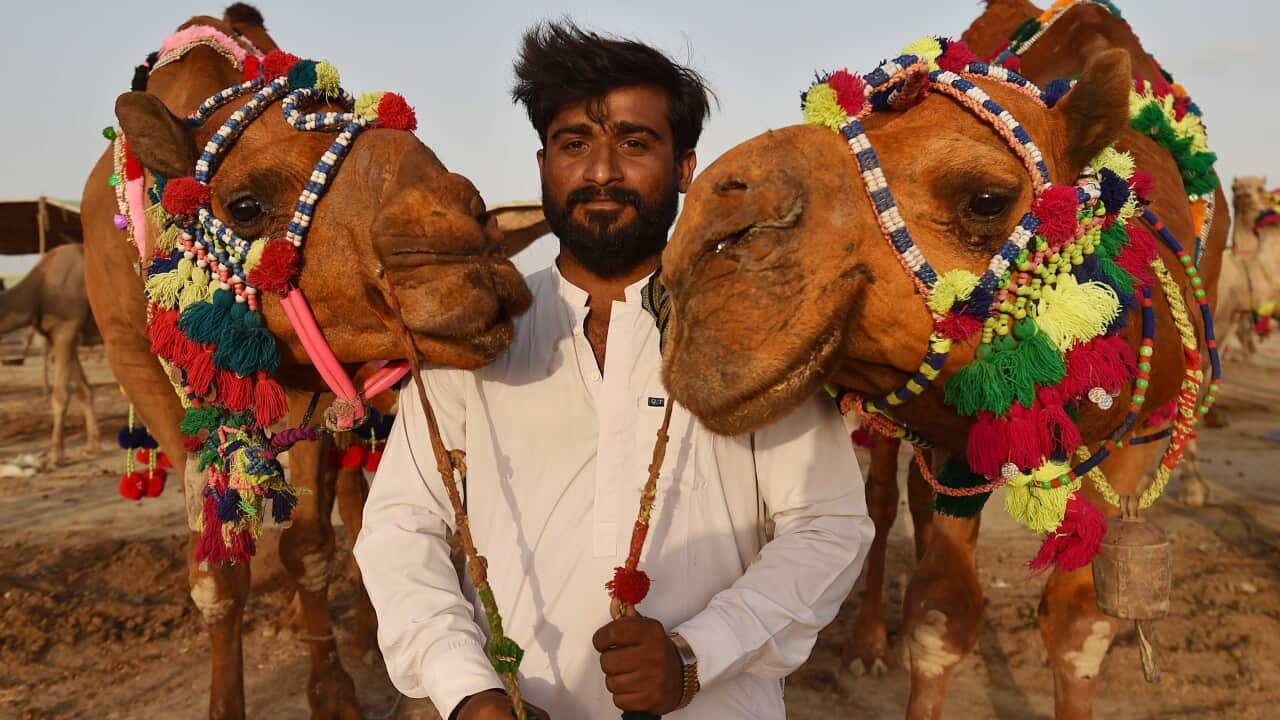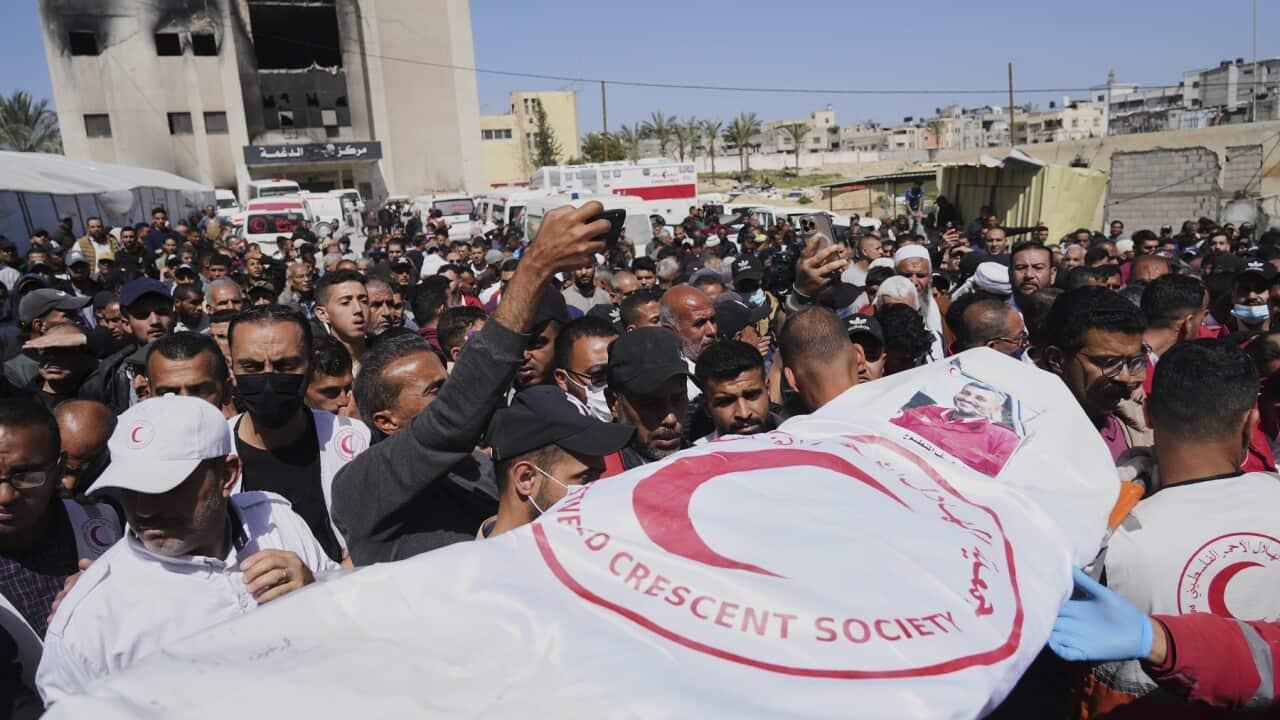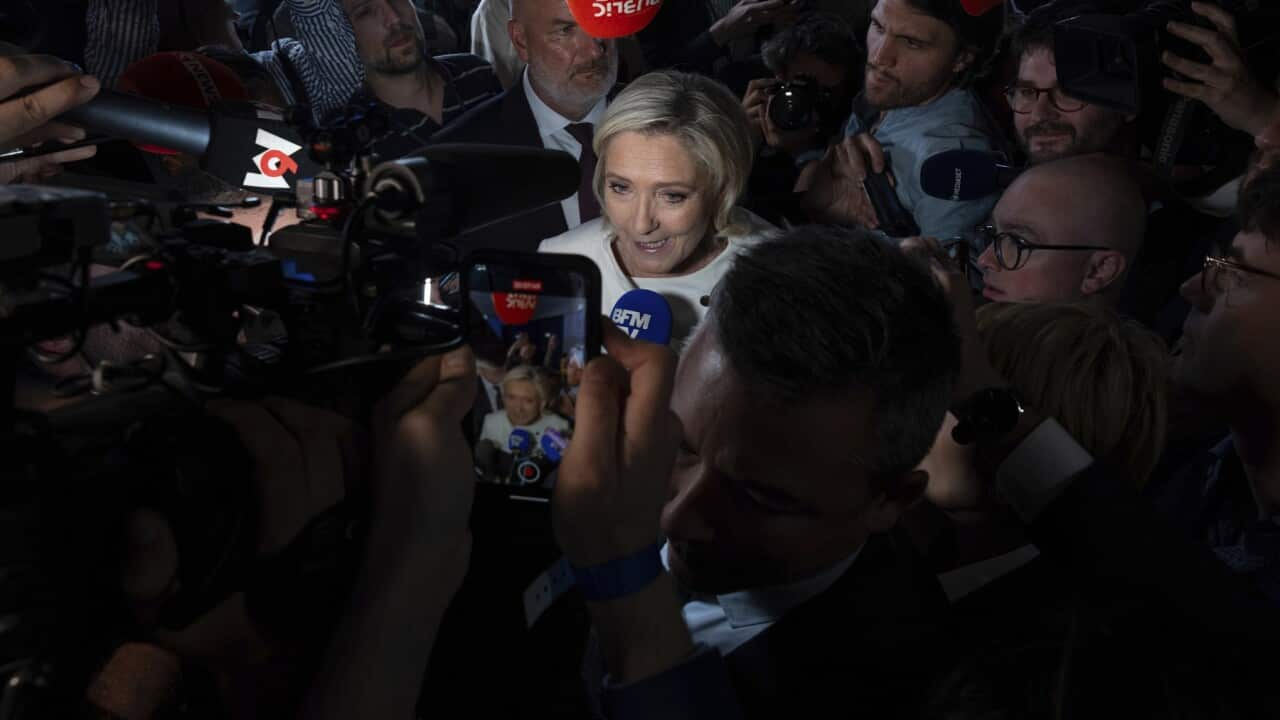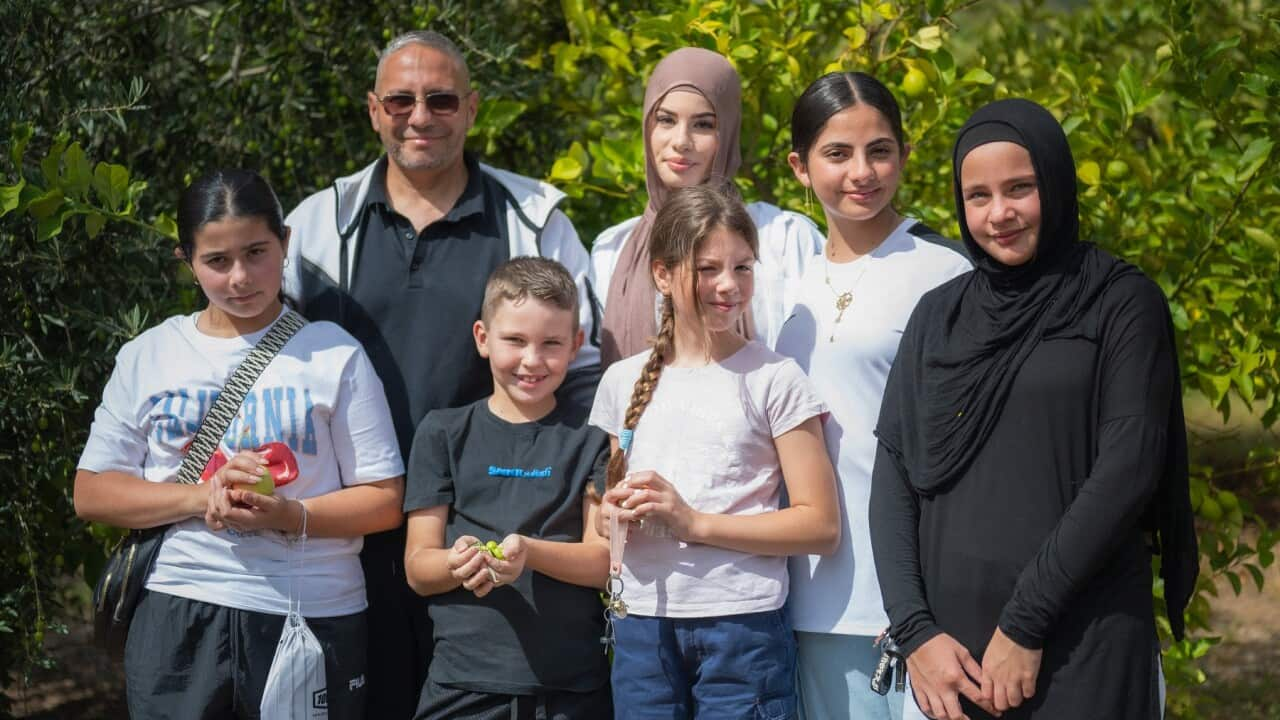Produced in collaboration with SBS Pashto and SBS Arabic
TRANSCRIPT
The Feast of Sacrifice - known as Eid al-Adha - is a major Islamic observance over four days and coincides with the end of Hajj, the annual pilgrimage to Mecca in Saudi Arabia, which every Muslim is expected to do at least once in their lifetime - if they have the financial means; and are physically able to undertake the journey.
There are two Eids in Islam - and Eid al-Adha is marked just over two months after Eid al-Fitr, which is the festival of breaking the fast celebrated at the end of the holy month of Ramadan.
Imam of the Elsedeaq Heidelberg Mosque in Melbourne, Alaa Elzokm OAM, says both Eids are of equal importance.
"So, as Muslims around the world, we have two feasts. The first one comes after a big act of worship, which is the month of Ramadan, which is Eid al-Fitr, the Eid of breaking the fast; and the second one is also connected to Hajj, so it comes after a great act of worship, which is pilgrimage. The reason why both feasts have been prescribed is to celebrate after fulfilling the instructions of God-fasting in the month of Ramadan and after pilgrimage. So, these two big occasions are what we celebrate as Muslims around the world. And Muslims around the world are recommended to celebrate the blessings of God upon them and also celebrate fulfilling the acts of worship that they have done."
Eid al-Adha commemorates a tale of sacrifice and trust which is a story Christians and Jewish people also share.
The Islamic version pays tribute to the actions of Prophet Abraham when he was commanded to sacrifice his son Ishmael in a test of his faith.
Imam Elzokm says it provides the foundation for why some Muslims will sacrifice an animal during Eid al-Adha and share the meat with their family, friends and those less fortunate.
"Prophet Ishmael, when Prophet Abraham had the order to sacrifice his son; and instead of that God replaced Prophet Ishmael with sacrifice of the sheep. And that's why it is recommended for the Muslims as well to have the sheep, to slaughter the sheep and to share the meat with the family, friends and the poor people mainly around the world. So that's why it is called the Eid of the sacrifice."
A financial sacrifice is also important during Eid al-Adha.
Khalid Janbaz is the founder of the charity Helping Needy Afghans.
It collects donations from Australian-based Afghans to send back to the country which is enduring a financial crisis.
The country's economy has essentially collapsed since the takeover by the Taliban in 2021.
Mr Janbaz told SBS Pashto the Afghan diaspora is eager to help during Eid al-Adha.
He says despite the cost-of-living challenges here, donations are up this year.
"A lot of people back home (in Afghanistan) they don't have any job. If they have jobs, they're not getting enough pay, so all the families who are living in other countries overseas, they are trying to help the families and friends, so they can celebrate the Eid with their family as well. So that's why everybody is trying to donate as much as they can."
He says while there's awareness of the economic challenges, Australian-Afghans also wanted to donate to help those impacted by the recent floods in Afghanistan that killed more than 300 people and destroyed at least 1,000 homes.
"They lost their houses and hundreds and hundreds of families they lost their loved ones. And also the other thing people are financially struggling as well. So it's very important that all the Afghans who are living overseas, they have to get together and support the people of Afghanistan."
Imam Alaa Elzokm says feeling unified during Eid is important and having the first day fall on a Sunday makes it easier for family and friends to be together.
"So, one of the main lessons of Eid is unity. People coming in the large numbers and we're very lucky to have Eid on the weekend, on Sunday, so a lot of people would be free - and wouldn't have work - to come as a family. And they celebrate together, especially children and they come. What we emphasise on at the mosque is the unity between Muslims when we are lining up, coming from different cultures, different races and backgrounds - and this is what we teach-unity. And this is also something that we reflect upon here in Australia as a multicultural country."
Imam Elzokm says one message he'll be imparting for those worshipping at the Elsedeaq Heidelberg Mosque, is not only the importance of maintaining good relationships with their own family and friends, but also with their non-Muslim friends.
He says the response in Australia to the conflict in Gaza has shown the importance of those connections.
"We remind them also to be good Australian Muslims that are living in this country. We remind them to appreciate the blessings that they have here. Aand one of the main reminders that is definitely going to be given to them is: reflecting upon what's happening in Gaza and making prayers for their brothers and sisters in Palestine, extending the support to them by donating for them; and wishing them to have a peaceful situation there. And to remind them of the situation and to reflect upon and to be ready to help their brothers and sisters always; and to always look for justice to be implemented over there."













